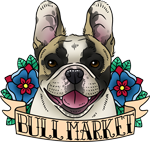Mycotoxins and Pet Food – Avoid Plant Protein Heavy Kibble
In case you’re not yet scared enough of pet food, here’s a fun article about mycotoxins in pet food, featuring Dr. Trevor Smith, University of Guelph Animal and Poultry Science Professor, and world leader in the field of research into mycotoxin contamination in animal feed.
“A shift in pet food ingredients is on,” says Animal and Poultry Science professor Trevor Smith, who, after 35 years of mycotoxin research at Guelph, is a world leader in the field. “Instead of worrying about bacteria spoilage or disease contamination, like we have in the past, we now have to focus on removing mycotoxins.”
Why are mycotoxins suddenly an issue, you ask? Because they come from NON meat/fish/poultry ingredients, ingredients like vegetable cereals, corn, wheat and rice – cheap fillers that allow manufacturers to pump up protein levels, at a fraction of that cost of ‘real’ proteins.
The ingredient that should raise the most alarms, according to Dr. Smith, is the innocuous sounding rice bran. “That’s the ingredient that’s often contaminated,” he says. FYI, search results on Dog Food Advisor show several pet foods with rice bran high on their list of ingredients, but any dog food with significantly high levels of plant based protein should be avoided (this list of one or two star rated foods is a good starting point for brands to avoid).
Mycotoxins are dangerous to animals, and can result in “loss of appetite, sleepiness, lack of co-ordination, immune system suppression and vomiting”. Of note to breeders is that mycotoxins have also been shown to impair growth and reproduction, although the bulk of research so far has been on ruminant animals (citation). It’s important to note that mycotoxins are dangerous not only via ingestion, but also via exposure from handling or inhalation, putting the people who handle mycotoxin contaminated pet food at risk even if they do not ingest it themselves.
How do we avoid exposing our pets to excessive risk of mycotoxins? By feeding a diet that is heavy on animal, poultry or fish based protein sources, and NOT plant based. Raw diets, whether home made or commercial, are ideal for this, but so are quality freeze dried diets, dehydrated diets, or animal protein based kibble diets such as Orijen.
Oh, and I’d like to hope that this will give the people who insist that vegan diets are safe for pets food for thought – although I’m not holding my breath (but I would be if I was feeding that food – remember, mycotoxins can be inhaled!).




Plant protein heavy kibble poses possible health risk to dogs & cats according to University of Guelph researcher. http://t.co/9s9qF4Jl3N